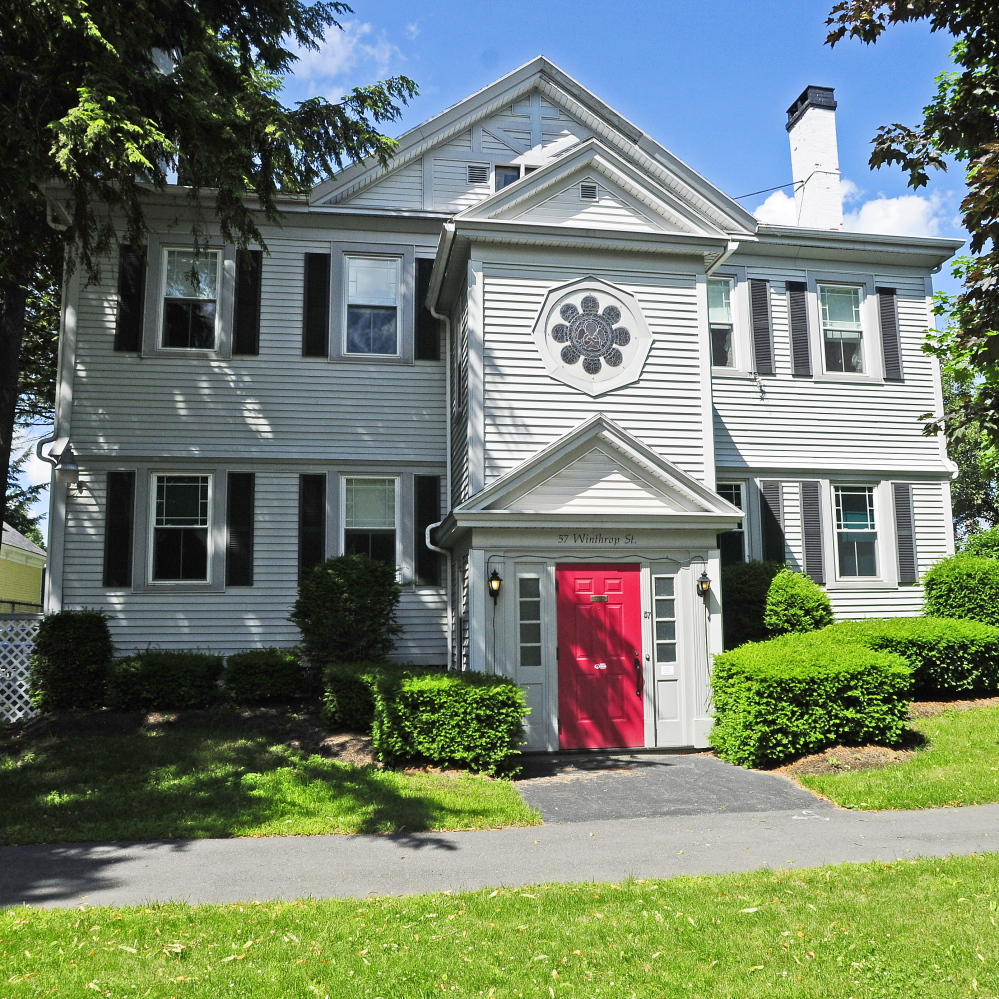AUGUSTA — A dispute over the future ownership of the St. Mark’s Home property at Winthrop and Pleasant streets is heading for mediation Wednesday.
The two-story home, which closed last October, was deeded by Allen Lambard in August 1870 to the rector, wardens and vestry of St. Mark’s Protestant Episcopal Church in Augusta. The property was to be used as a home for poor and destitute women forever.
The deed also said that when the home was no longer being used “the title is to revert to the said Lambard and his heirs.” Lambard was a grandson of Augusta resident Martha Ballard, whose 1785-1812 diary inspired Laurel Thatcher Ulrich’s “A Midwife’s Tale,” according to a history of the home published on the home’s website.
The home itself was created by a special act of the Legislature in 1871, a document that has been amended several times since 1965 to result in the house being designated most recently as a home for men and women. Records indicate the house was built around 1805 and owned by Isaacher Snell, who sold it to Lambard on July 30, 1870.
In recent years, the home’s occupancy decreased from a high of 17 to the five women living there when the closing was announced with operators citing financial concerns. The home also had an endowment which supplemented payments the women made for room and board.
St. Mark’s Home and the board of directors of the home, which are the rector, wardens and vestry, filed the lawsuit seeking clarification from a judge. The defendants are listed as the Attorney General for the State of Maine and the heirs of Allen Lambard.
The complaint, filed by attorney Phillip Johnson, says in part, “uncertainty exists over whether the real estate has automatically reverted to the heirs of Allen Lambard under the reverter clause in the deed” or whether that is too late or unenforceable.
Various documents filed in the Kennebec County Superior Court case indicate that at least 17 heirs have been located, and more than a half dozen have formally disclaimed interest in the property.
Two individuals, however, Charlotte Catoni of Eagle Island, Michigan, and Frederick “Richard” Catoni of Park City, Utah, have hired an attorney and are seeking to have the property revert to Lambard’s heirs.
Most recently, the court appointed attorney Joseph O’Donnell to represent the heirs who have yet to be identified.
The state, represented by Assistant Attorneys General Linda Conti and Christina Moylan, seeks to have the home continue as a nonprofit home for men and women or to have the charitable trust modified or terminated to conform to Lambard’s intended purposes. The response filed in court says those at St. Mark’s church failed to obtain approval from the attorney general or the court prior to closing it. The state also asks the court to void any automatic reversion to Lambard’s heirs that is a result of the home’s closing.
The mediation conference could result in a settlement in principal or in the case continuing on for a hearing and possibly a trial, Conti said.
The home is on the same property as St. Mark’s Episcopal Church, which closed in late December, and the congregation now holds joint services with Prince of Peace Lutheran Church on Eastern Avenue. At the time, a spokeswoman for the Episcopal Diocese of Maine said dwindling membership meant it was difficult to maintain the physical plant of St. Mark’s church.
Betty Adams — 621-5631
Twitter: @betadams
Send questions/comments to the editors.




Success. Please wait for the page to reload. If the page does not reload within 5 seconds, please refresh the page.
Enter your email and password to access comments.
Hi, to comment on stories you must . This profile is in addition to your subscription and website login.
Already have a commenting profile? .
Invalid username/password.
Please check your email to confirm and complete your registration.
Only subscribers are eligible to post comments. Please subscribe or login first for digital access. Here’s why.
Use the form below to reset your password. When you've submitted your account email, we will send an email with a reset code.